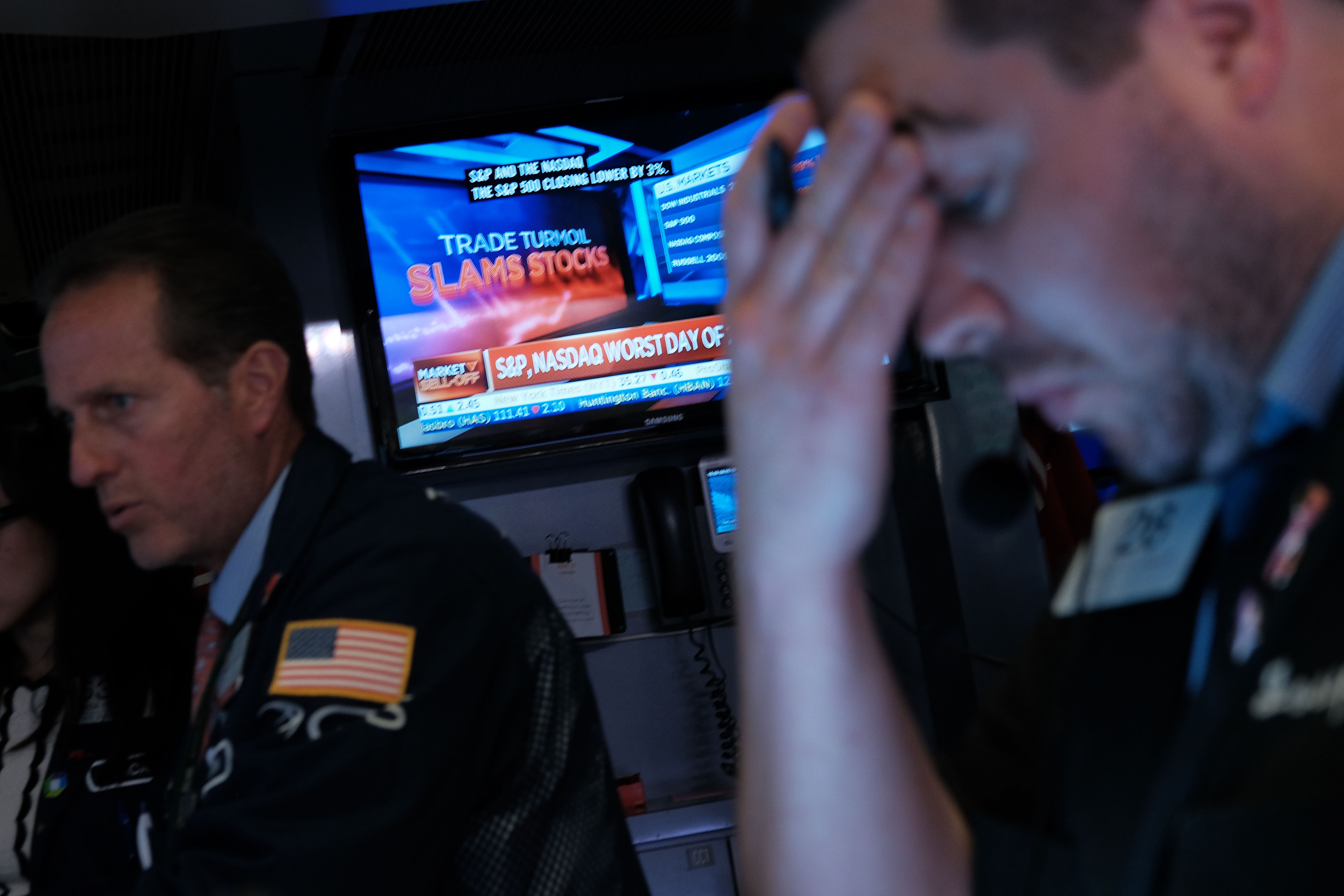U.S. recession fears tick up amid escalating China trade war


A free daily email with the biggest news stories of the day – and the best features from TheWeek.com
You are now subscribed
Your newsletter sign-up was successful
President Trump's latest round of tariffs on Chinese goods and decision to brand China a currency manipulator, followed by China's scrapping new purchases of U.S. agricultural goods, will hurt the economies in both countries, economists warn. A Reuters survey of economists conducted Aug. 6-8 and released Friday found that about 70 percent said the latest salvos in the escalating trade war have brought the next U.S. recession closer, 45 percent of economists surveyed said the U.S. economy will slip into recession within the next two years, and a majority predicted that the Federal Reserve will cut rates again in September and then at least once more this year.
Trump frequently complains that the Fed's rate increases have been hurting the economy and stifling growth, but a New York Times analysis Friday shows that the Fed "has kept interest rates lower than under any other president since Jimmy Carter, when adjusted for the economy's output and inflation," and "Congress has provided an unusual level of fiscal support." Those combined stimulus measures have buffered the economy against damage from Trump's tariffs and China's retaliatory measures, "but as the dispute escalates, that insulation may not be enough," the Times says. Economists warn "that the Fed, in particular, has only so much help to give."
Also Friday, the International Energy Agency reported that global demand for oil in the first half of 2019 was the weakest since 2008. The IEA also downgraded its forecasts for global oil demand — a barometer of the world's economic health — citing U.S.-China trade tensions.
The Week
Escape your echo chamber. Get the facts behind the news, plus analysis from multiple perspectives.

Sign up for The Week's Free Newsletters
From our morning news briefing to a weekly Good News Newsletter, get the best of The Week delivered directly to your inbox.
From our morning news briefing to a weekly Good News Newsletter, get the best of The Week delivered directly to your inbox.
A free daily email with the biggest news stories of the day – and the best features from TheWeek.com
Peter has worked as a news and culture writer and editor at The Week since the site's launch in 2008. He covers politics, world affairs, religion and cultural currents. His journalism career began as a copy editor at a financial newswire and has included editorial positions at The New York Times Magazine, Facts on File, and Oregon State University.
-
 Why is the Trump administration talking about ‘Western civilization’?
Why is the Trump administration talking about ‘Western civilization’?Talking Points Rubio says Europe, US bonded by religion and ancestry
-
 Quentin Deranque: a student’s death energizes the French far right
Quentin Deranque: a student’s death energizes the French far rightIN THE SPOTLIGHT Reactions to the violent killing of an ultraconservative activist offer a glimpse at the culture wars roiling France ahead of next year’s elections
-
 Secured vs. unsecured loans: how do they differ and which is better?
Secured vs. unsecured loans: how do they differ and which is better?the explainer They are distinguished by the level of risk and the inclusion of collateral
-
 TikTok secures deal to remain in US
TikTok secures deal to remain in USSpeed Read ByteDance will form a US version of the popular video-sharing platform
-
 Unemployment rate ticks up amid fall job losses
Unemployment rate ticks up amid fall job lossesSpeed Read Data released by the Commerce Department indicates ‘one of the weakest American labor markets in years’
-
 What a rising gold price says about the global economy
What a rising gold price says about the global economyThe Explainer Institutions, central banks and speculators drive record surge amid ‘loss of trust’ in bond markets and US dollar
-
 US mints final penny after 232-year run
US mints final penny after 232-year runSpeed Read Production of the one-cent coin has ended
-
 Warner Bros. explores sale amid Paramount bids
Warner Bros. explores sale amid Paramount bidsSpeed Read The media giant, home to HBO and DC Studios, has received interest from multiple buying parties
-
 Gold tops $4K per ounce, signaling financial unease
Gold tops $4K per ounce, signaling financial uneaseSpeed Read Investors are worried about President Donald Trump’s trade war
-
 Electronic Arts to go private in record $55B deal
Electronic Arts to go private in record $55B dealspeed read The video game giant is behind ‘The Sims’ and ‘Madden NFL’
-
 New York court tosses Trump's $500M fraud fine
New York court tosses Trump's $500M fraud fineSpeed Read A divided appeals court threw out a hefty penalty against President Trump for fraudulently inflating his wealth
